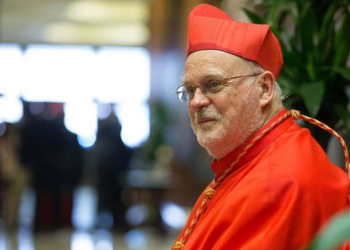Claire Coutinho is the MP for East Surrey and Shadow Secretary of State for Energy Security and Net Zero.
Britain used to be a world leader in nuclear power.
We built the world’s first nuclear power plant, and in the sixties, we had more reactors than the rest of the world combined.
We were building one every six months.
Nuclear power stations with decades-long lifespans, like the one I recently visited in Bradwell in Essex, powered Britain with reliable, secure electricity – and with zero emissions to boot.
But something changed.
For decades, Britain didn’t build a single nuclear power plant.
Tony Blair said he didn’t see the economic need, and Nick Clegg argued that it would take too long. The last Conservative Government started two, and I signed off a third at Wylfa in Wales – but there’s a cost problem.
It now costs more to build a nuclear power station in Britain than anywhere else in the world.
Bradwell was built, in the 1960s, in just five years.
Hinkley, currently under construction, will take at least thirteen. Why? It’s partly the stop-start approach which means you have to rebuild supply chains, skills, regulation and financing structures from scratch. But that’s over now.
The major problem we have today is the over-zealous environmental regulations which protect tiny amounts of bats, newts, snails and fish no matter the cost or the consequences. That’s why the environmental report for Sizewell C was thirty times longer than the complete works of Shakespeare.
And at Hinkley, EDF have been forced to spend eight years working on a ‘fish disco’. They’ve had to spend millions installing underwater speakers to deter a tiny number of fish from swimming into their pipes. Yes, really.
These environmental regulations do much more harm than good to nature, because nuclear is the most pro-nature energy source in existence.
Nuclear uses a thousand times less land than wind or solar.
Pro-growth group Britain Remade have calculated that to produce the same amount of electricity as Hinkley Point C, you would need a wind farm the size of the New Forest, or a solar farm as large as the Isle of Wight. There are only a small handful of sites that could be used for large nuclear plants, and they are longstanding and well-known by their local communities – unlike the solar farms popping up in some of our most historic landscapes.
The small amounts of fish being deterred by the fish disco at Hinkley will be dwarfed by the wildlife that would encounter upheaval for the amount of wind and solar needed to match Hinkley’s output.
On a small island like ours, where every inch of countryside is precious, that matters.
How did we get to the absurdity where supposedly ‘green’ outfits prefer to carve up the countryside for land-hungry wind and solar farms, rather than engage with the reality of land densities?
For centuries, environmentalism has been an intrinsically conservative instinct. Environmentalism was not the domain of activists in ‘Hi-Vis’ jackets, but of the millions of ordinary people who felt a deep, almost spiritual love of home and an attachment to nature.
This love of home inspired grassroots activity which embodied what Roger Scruton called the “small-scale wisdom of the human heart” – people who came together to preserve, protect, and clean up their local environment, motivated by public spirit. That public spirit was rooted in patriotism, in love of country, in a sense of belonging, and love of a shared and inherited home.
But today, the environmental movement has been hijacked. Radical, ideological, and often just plain wrong.
It is in fact the Green Party, and Labour’s super donor Dale Vince, formerly of the Just Stop Oil parish, who have been some of the loudest voices against nuclear, despite what wind and solar means for our marine and rural environments. And because their belief system is a quasi-religion, the innovative new forms of nuclear – small and advanced modular reactors – will likely come up against the same kinds of challenges – stymied by lawfare, racking up higher and higher costs.
If we truly want to protect nature, we need to double down on nuclear.
Without changing the regulations that hold it back, Labour’s nuclear noise will be just that – noise. We gave them their chance to support us last week, tabling radical amendments to the Planning Bill to make it easier and faster to build nuclear and to stop Britain’s nuclear plans being blocked or delayed by lawfare from anti-growth activists who just want to stop anything being built.
Labour should have backed our proposals, but they refused to do so.
We need to get out of the poverty mindset that says Britain can’t build anything anymore. Energy is prosperity. If we want to have a future with growth industries like energy-hungry AI or high living standards that, say, allows our people to have air conditioning, then we need a lot of cheap, reliable energy.
Britain built a lot of nuclear before, and we can do it again – we just need politicians with the courage to change the law and make it happen.





![ICE Arrests Illegal Alien Influencer During Her Livestream in Los Angeles: ‘You Bet We Did’ [WATCH]](https://www.right2024.com/wp-content/uploads/2025/08/ICE-Arrests-Illegal-Alien-Influencer-During-Her-Livestream-in-Los-350x250.jpg)
![Gavin Newsom Threatens to 'Punch These Sons of B*thces in the Mouth' [WATCH]](https://www.right2024.com/wp-content/uploads/2025/08/Gavin-Newsom-Threatens-to-Punch-These-Sons-of-Bthces-in-350x250.jpg)








